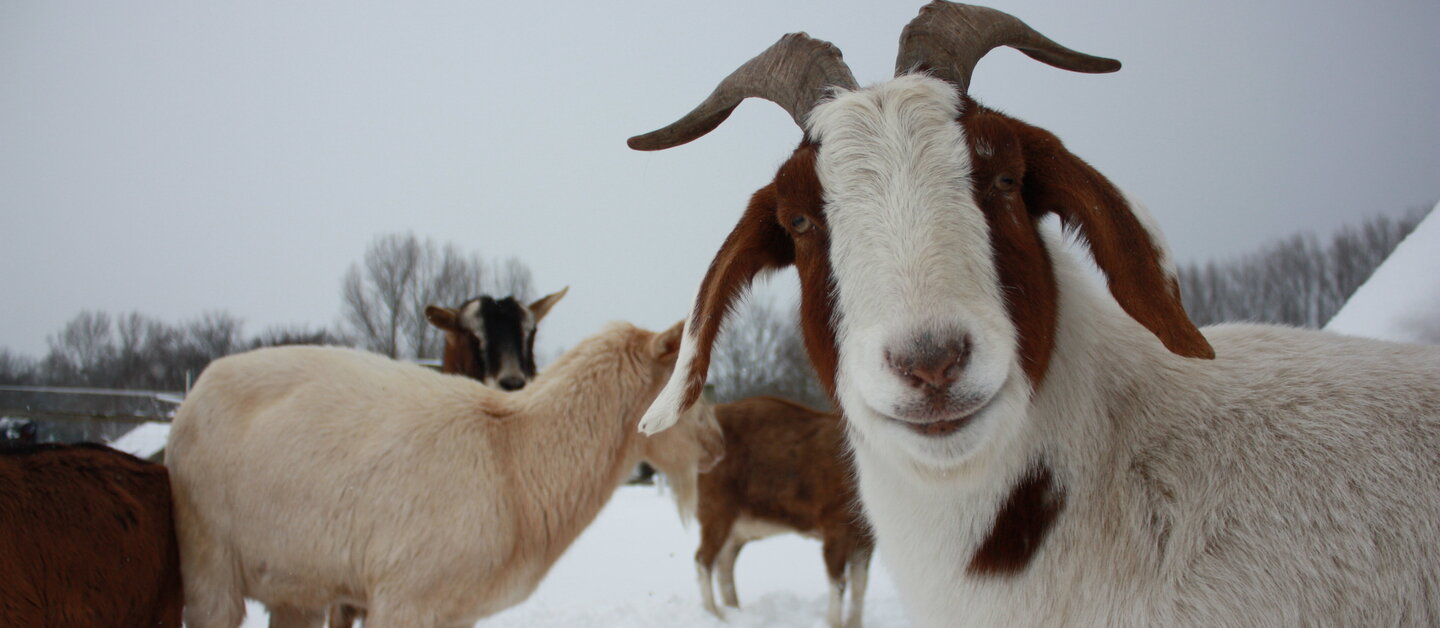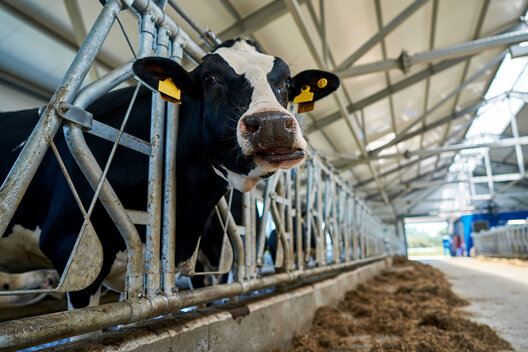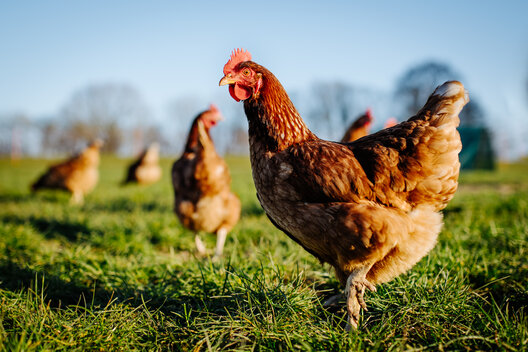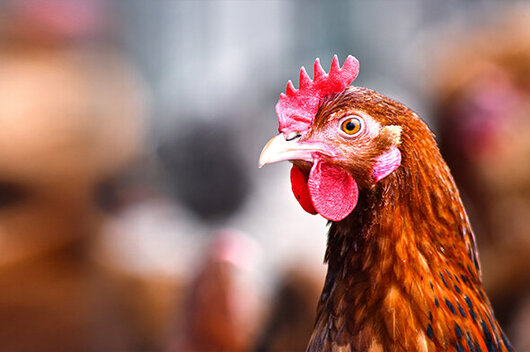Sheep, goats and cattle in winterWhat you should bear in mind when keeping your animals outdoors in winter
Low temperatures, frost and snow: every winter, passers-by worry when they see goats, sheep and cattle living outdoors day and night. What is best for these animals during the cold season?
Keeping goats, sheep and cattle outdoors best meets their needs. Daylight, fresh air and different weather conditions benefit their health. It is more difficult if owners do not provide their animals with additional feed or shelter and if there is prolonged frost.
Can goats be outside in winter?
Goats are very sensitive to wet conditions. Keeping them outdoors all year round is only possible if a shelter with dry ground offers all animals protection from rain and storms at the same time. Goats should also be given additional feed in winter and have fatty tissue and fur to cope with the climate. The fence around the open area - a picket fence or knotted fence - should be at least 1.80 meters high and stable, otherwise the goats could climb over it or knock it over. Keepers should definitely avoid using barbed wire. They must observe, look after and control their herd every day, regardless of the time of year.
Cattle and sheep in winter
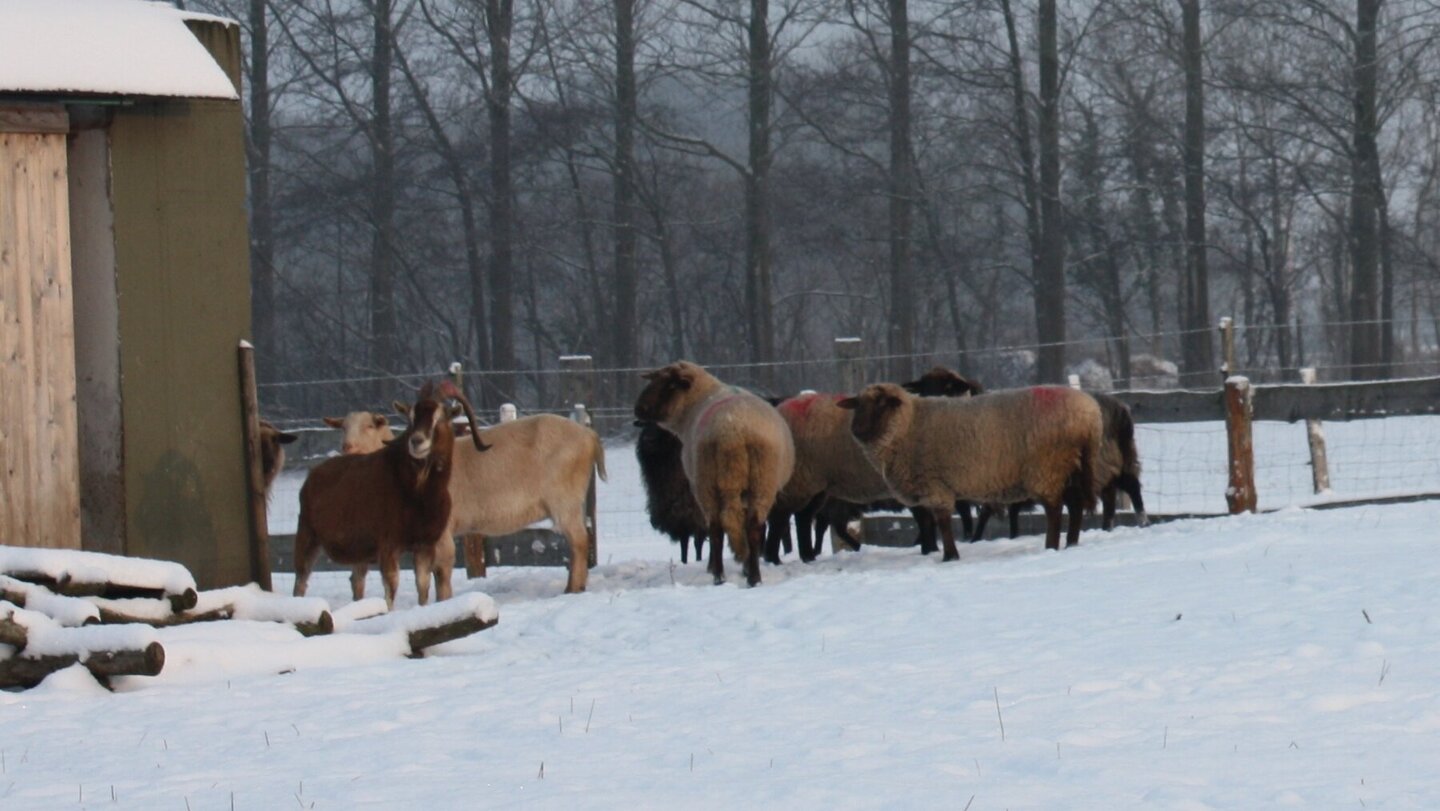
Cattle and sheep can generally cope with cold temperatures - much better than with heat. Windy, cold and wet weather, on the other hand, is problematic. Nevertheless, cattle, sheep and goats can also be kept outdoors in the fall and winter from an animal welfare perspective as long as these conditions are met.
Checklist: Report grievances
If you observe that animals are being badly kept or tortured outdoors, keep calm and proceed as follows:
- Document the abuses
If the animals have no protection from extreme weather conditions or the food and water supply is inadequate, you should report these abuses. Make a note of the place, time and events and, if possible, take photos of the situation. - Contact the veterinary office
The competent veterinary office is the right address to report such abuses. This authority is responsible for compliance with the Animal Welfare Act. - Press charges if necessary
In acute emergency situations or a clear case of animal cruelty, you have the option of filing a criminal complaint with the police or the public prosecutor's office.
If you have any questions or need support, please contact the local animal welfare association in your area.

